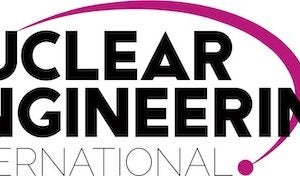TRADITIONALLY THE DISCIPLINES OF SCIENCE, technology, engineering and maths have been highly valued. Today, these subjects are a door to a multitude of potential career choices, exciting possibilities and lucrative earning power. It has been positive in recent years to see so much done to address the skills gap across STEM subjects, nuclear in particular. However, now we must refocus and concentrate efforts on developing the talent pipeline to guarantee the future of the UK nuclear industry.
A challenging landscape
The broadest outlook from STEM Learning’s STEM Skills Indicator paints a damning picture in the UK: business leaders estimate that the shortage costs the UK economy £1.5 billion annually. There are 173,400 vacancies overall in industries which rely on staff with science, technology, engineering and maths skills. However this creates an opportunity.
The Nuclear Industry Association estimates that more than 100,000 jobs will be available in the nuclear sector by 2021. For aspiring professionals and sector graduates alike, this means a variety of rewarding roles will become available in the short-term for those willing to harness STEM skills and seize these opportunities.
The skills shortage will affect every level of British society. Consider one example: energy production. Driven by the electrification of transport and heating, the country’s need for clean energy is expected to grow rapidly as we approach net zero. Nuclear generation will play a pivotal role in the future energy mix, and while the tools and technology needed to generate that power are available, a reliable pipeline of appropriately skilled individuals will be essential to meeting future demand.
Rebalancing the ecosystem
The UK Government has acknowledged that STEM skills are crucial for the country’s productivity and has made recommendations to improve STEM education. Alongside this, the government has committed, under the Nuclear Sector Deal, to invest £406m in maths, digital and technical education and a further £64m to create a National Retraining Scheme specifically aimed at relieving the human resource shortfall in nuclear.
Encouraging young people to study STEM subjects is only the first step. To ensure interest beyond secondary school, misconceptions that STEM subjects are ‘too hard’, ‘too geeky’, or are for a specific gender need to be deconstructed.
Shifting perceptions
From an early age, it must be shown that STEM skills are a pathway to interesting careers which are respected the world over. With the average UK nuclear engineering salary sitting at £48,418, such a career can also offer significant earning power.
Careers that require training in STEM subjects include those that mean building robots, supporting societies, technological advancement and in the nuclear industry in particular, fighting climate change. STEM careers are exciting! And who better to demonstrate that than the industries who are trying to attract them?
In the nuclear industry, corporations have a key role to play in engaging young people across the education system and inspiring them to explore STEM subjects that lead to fulfilling careers. At primary level, this can be done by providing schools with support for lesson plans and educational materials like science days — where pupils can be hands on with mini circuit boards and robotic arms. This can be the opportunity to bridge between play and subjects and sow a seed of interest in children about how the world works years before they’re making their career choices.
Moving into secondary (high school) years, the priority should shift into raising visibility and awareness of the career choices available. It is the perfect opportunity for individuals within the industry to act as sector ambassadors, hosting introductory activities in and open days with schools, building a rapport with students and allowing them to become familiar with key concepts in a tangible, stimulating and interactive way.
Lastly, it is vital that the nuclear industry make careers in the field accessible to young people from every background. Work experience, internships and graduate schemes are all important first steps in giving young people real-world insights into the sector.
Assystem strongly advocates a career in the nuclear industry to aspiring professionals. Two of our corporate initiatives, #INCREDIBLEENGINEERS and #INCREDIBLEWOMEN, respond directly to the Nuclear Sector Deal’s stated aims of facilitating transferable skills from related industries into nuclear, and encouraging women into the workforce in significantly larger numbers.
Our engineers also host open days, site visits, initiatives in the communities in which we are based, and support to organisations who promote STEM, all with the objective of getting young people to not only consider going down a STEM career path, but to stay on it.
Role models
Mentoring can help address misconceptions. My father and grandfather were both engineers. They were my mentors from a very young age and set me on my current path.
Where those mentors are not present, industry must seek to provide those links to young people through education: to be the source of inspiration, the sponsor to the willing, and a support to emerging talent as these young people embark upon nuclear careers.
In the future, STEM skills will be even more in demand and it is imperative that the talent is available. The momentum that has been building to support the talent pipeline must not be allowed to dissipate. STEM is a rewarding, fulfilling and stimulating career-choice. Let us all spread the word.
Author information: Nicholas Morris is Key Account Manager at Assystem






